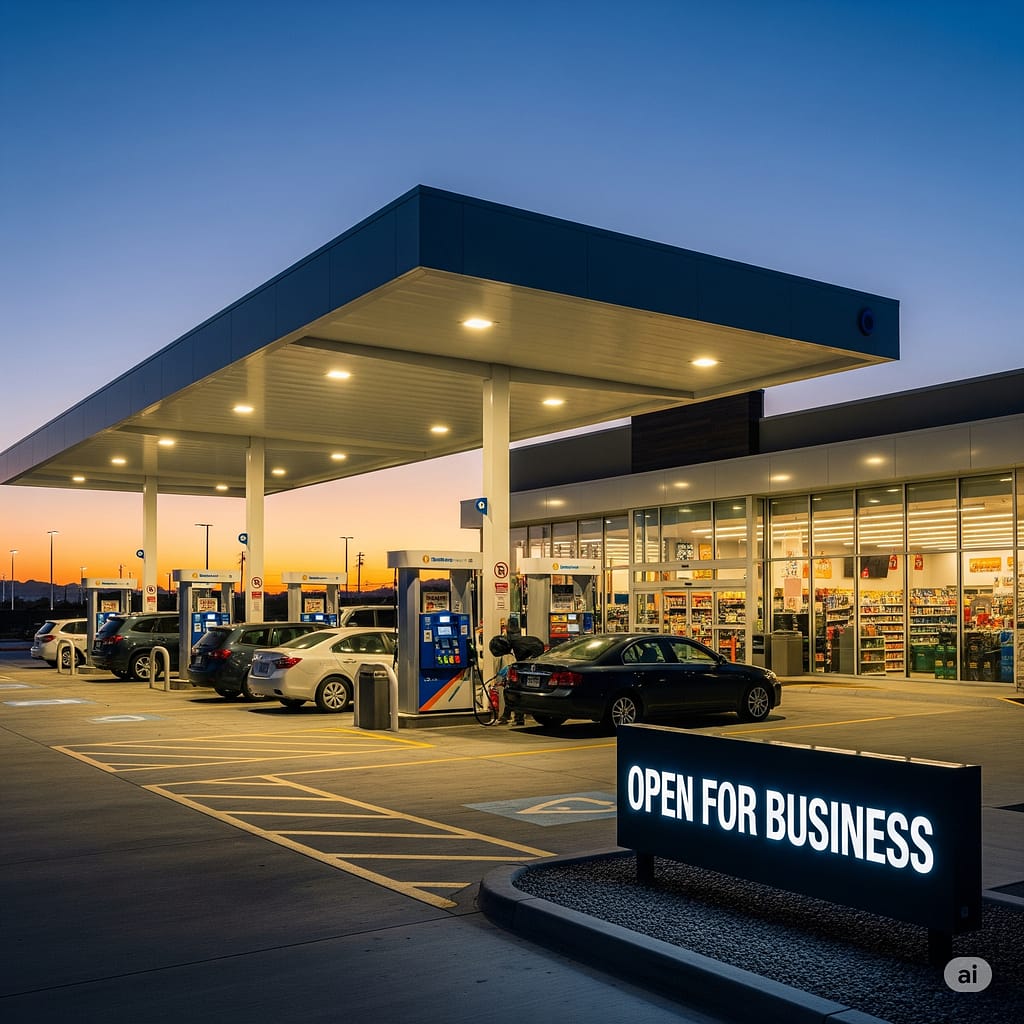
Gas stations are a cornerstone of modern life, but they are far from simple businesses. Combining fuel retail, a convenience store, and often other services like a car wash or quick-service restaurant, they are complex operations with unique financial needs. This complexity means that securing financing for a gas station requires a specialized approach and a deep understanding of the industry’s specific risks and revenue streams.
Lenders view gas stations as a “special-use” property, which requires a more detailed level of scrutiny than a standard office or retail building. Understanding what makes this financing unique is the first step toward a successful acquisition or refinance.
Why is Gas Station Financing Different?
Several key factors make financing a gas station a specialized field:
- Environmental Risk: The number one concern for any lender is the risk of ground contamination from the Underground Storage Tanks (USTs). A leak can lead to incredibly expensive cleanup costs. Because of this, every loan requires a Phase I Environmental Site Assessment (ESA) to ensure the property is clean. If any issues are flagged, a more intensive Phase II assessment will be needed.
- Multiple, Interlinked Businesses: Lenders aren’t just underwriting a piece of real estate; they are underwriting several businesses at once. They will analyze historical and projected fuel sales (gallons sold and profit margins), inside convenience store sales, lottery commissions, and any other sources of revenue. A strong performance inside the store can often make a deal much more attractive.
- Brand and Fuel Supply Agreements: The station’s relationship with its fuel supplier is critical. Is it a major brand like Shell or Chevron, or is it unbranded? The terms of the fuel supply agreement directly impact profitability and will be closely reviewed by the lender.
- Operator Experience: Due to the complexity of the business, lenders place a massive emphasis on the borrower’s experience. A proven track record of successfully owning and operating a gas station is one of the most important factors for getting approved.
Top Financing Options for Gas Stations
While challenging, several excellent financing avenues exist for qualified buyers:
- SBA Loans (7a and 504): Often the most popular and accessible route. The government guarantee provided by the Small Business Administration (SBA) reduces the risk for lenders, making them more willing to finance gas stations. The SBA 7a program is flexible and can be used for the business purchase, real estate, and working capital. The SBA 504 program is ideal for purchasing the real estate and major equipment.
- Conventional Loans: These are available from select banks for highly qualified and experienced operators with significant cash down payments (often 20-30% or more) and a pristine business plan.
- USDA Loans: If the gas station is located in a designated rural area, a loan from the U.S. Department of Agriculture can offer very attractive terms, including high leverage and long repayment periods.
Financing a gas station is a detailed process, but it is far from impossible. Success hinges on thorough preparation, a strong business plan, and clean environmental reports. Partnering with a finance broker who specializes in this niche industry can connect you with the right lenders who understand the business and are actively providing capital to help operators fuel their success.

